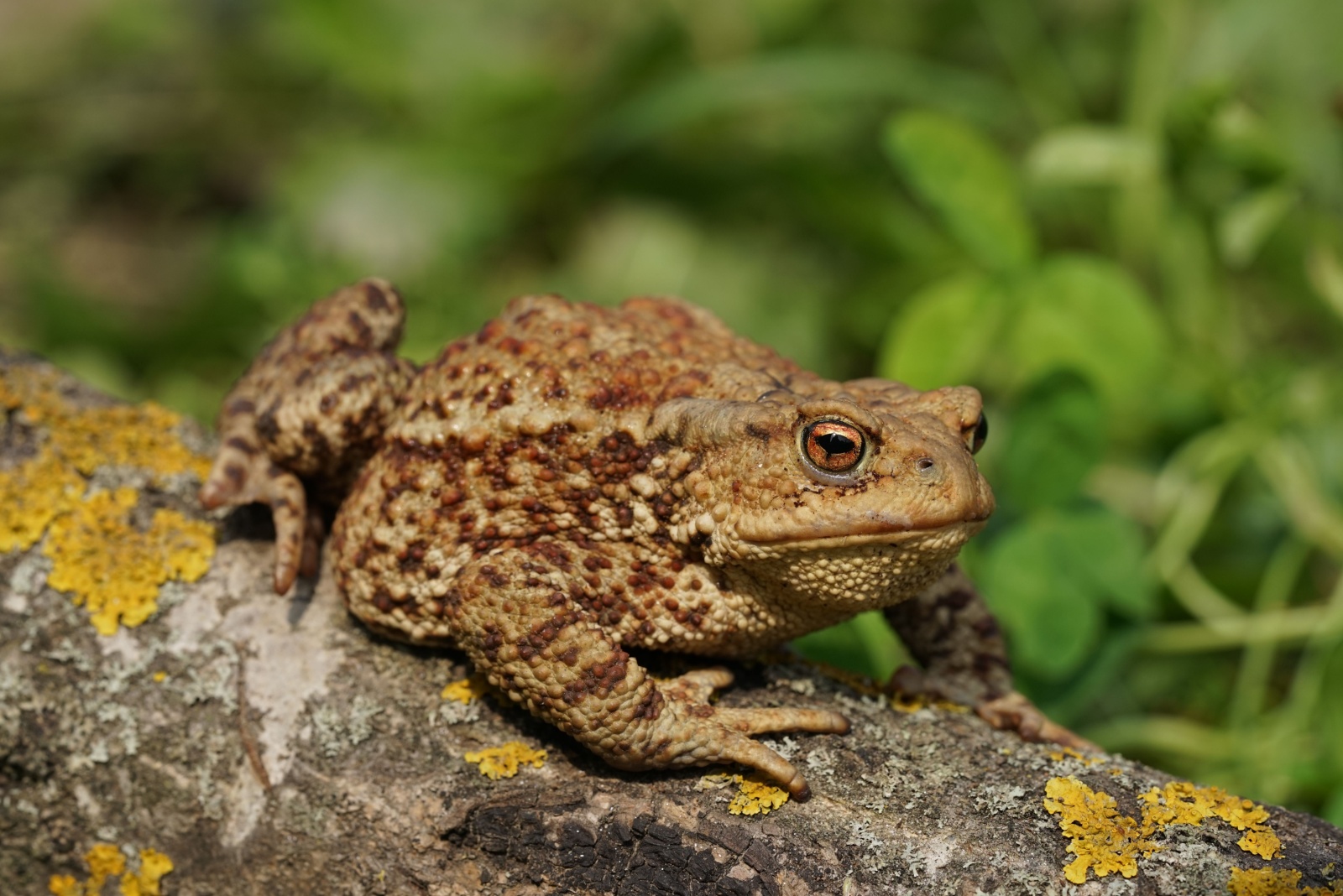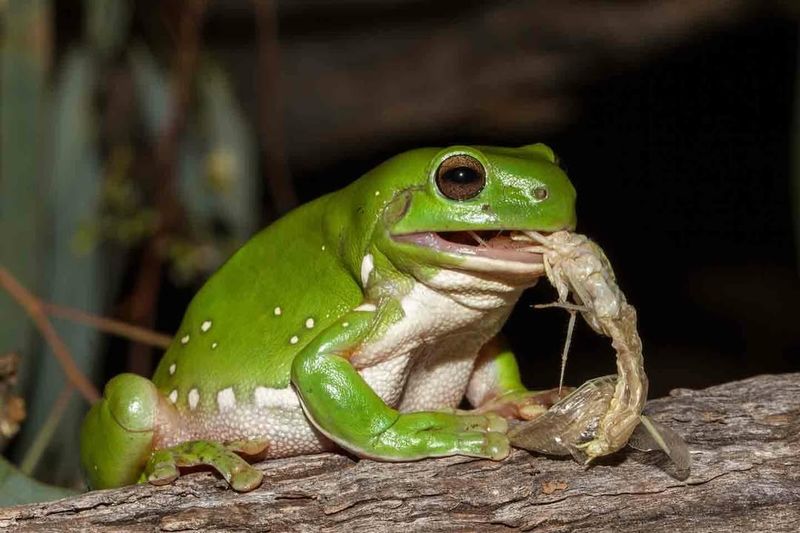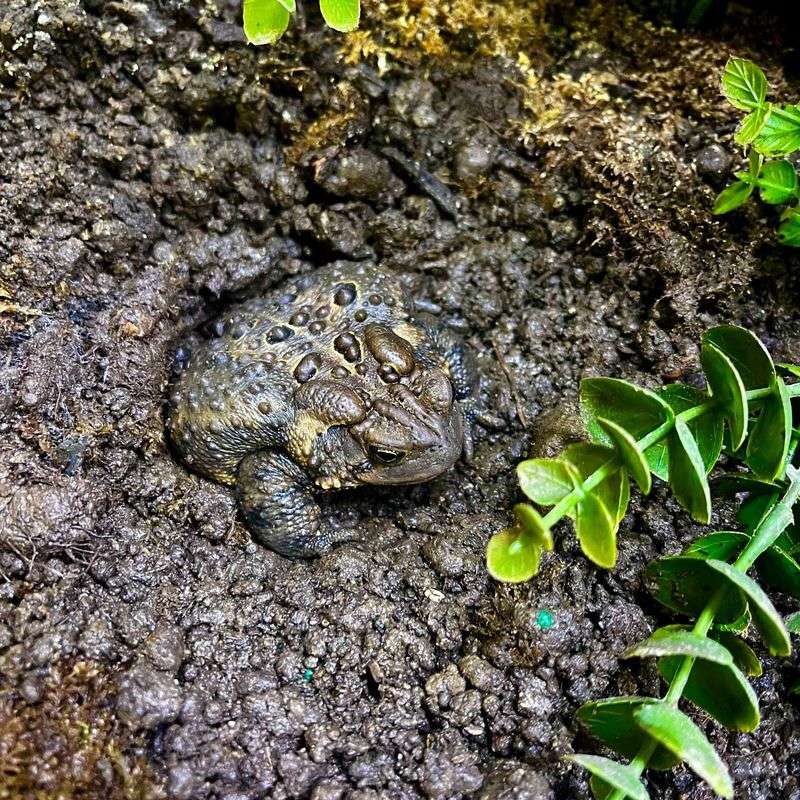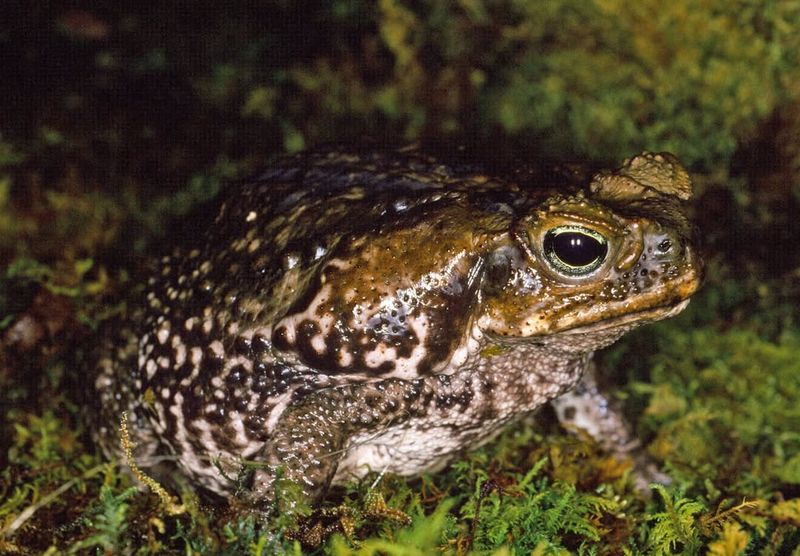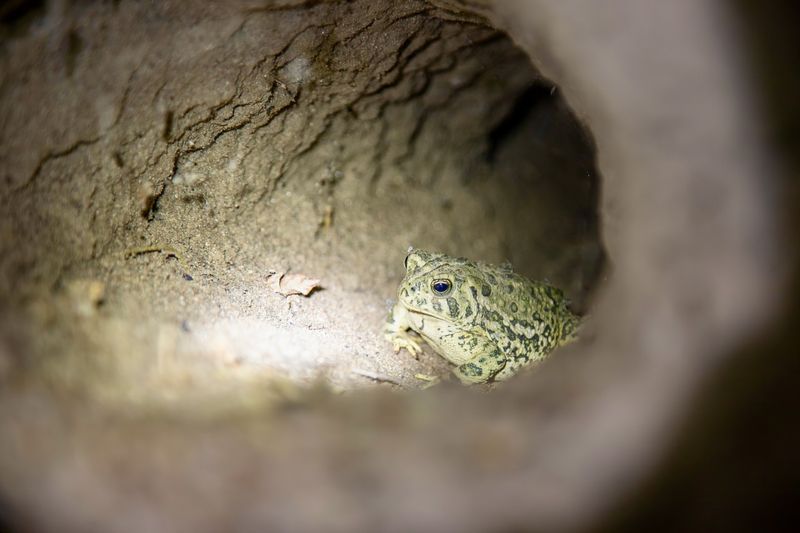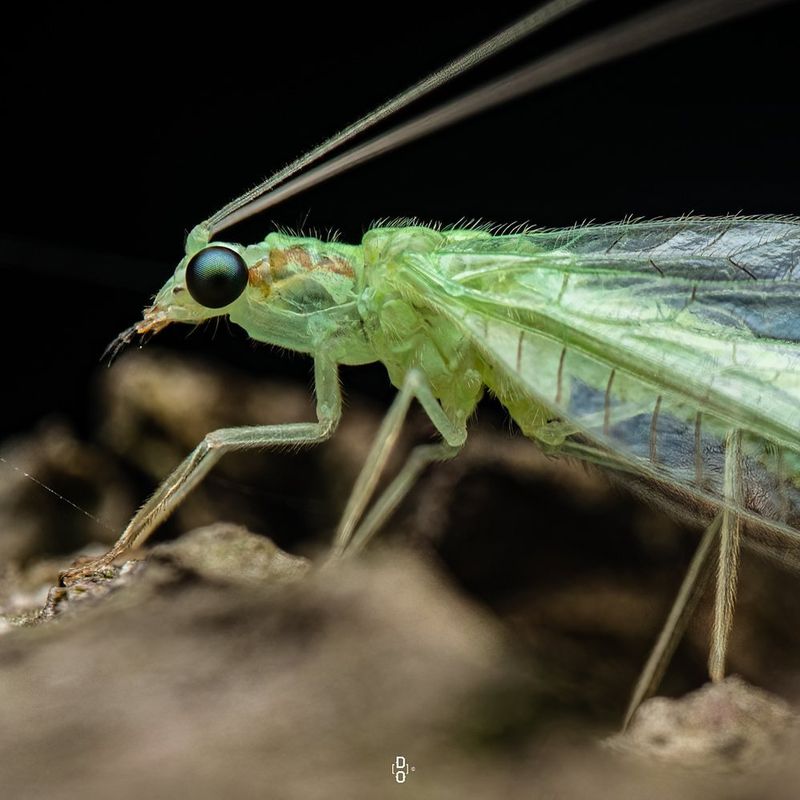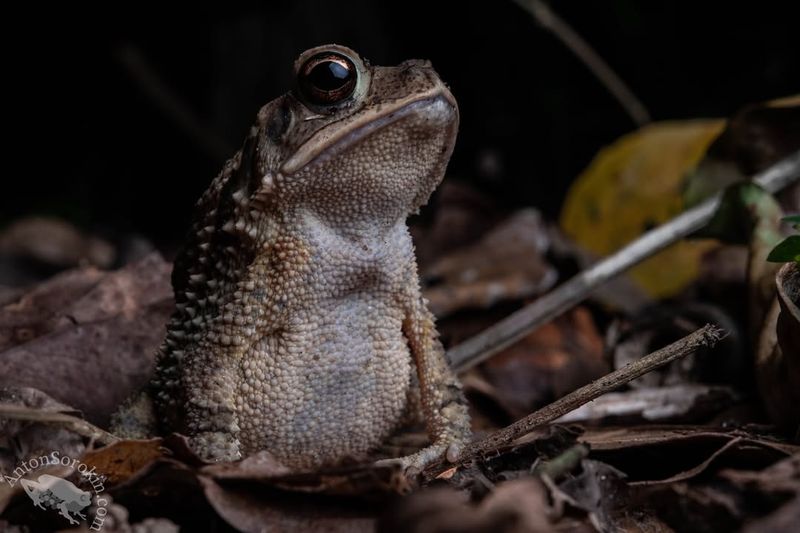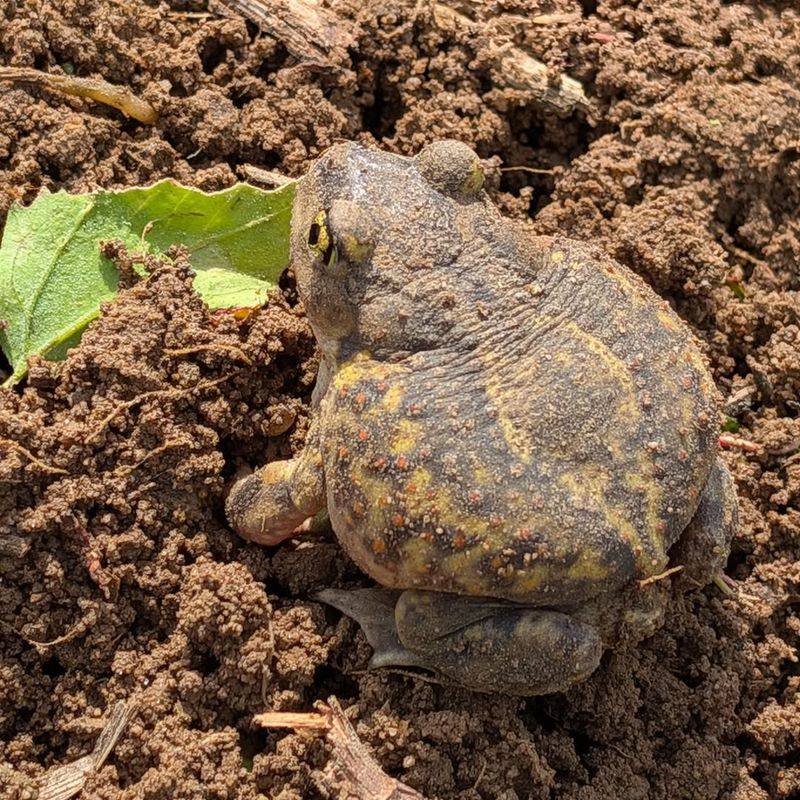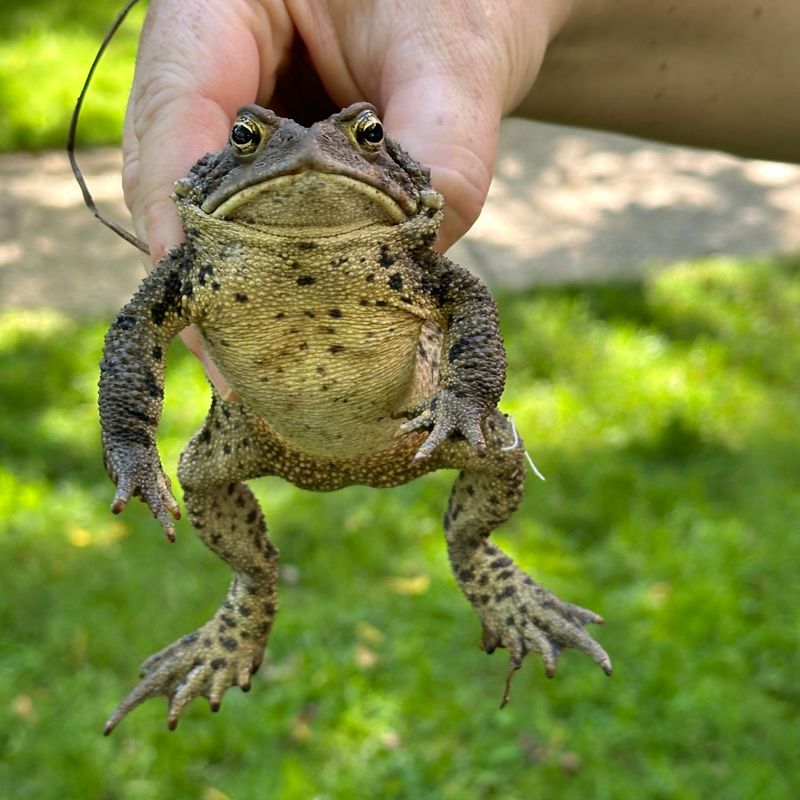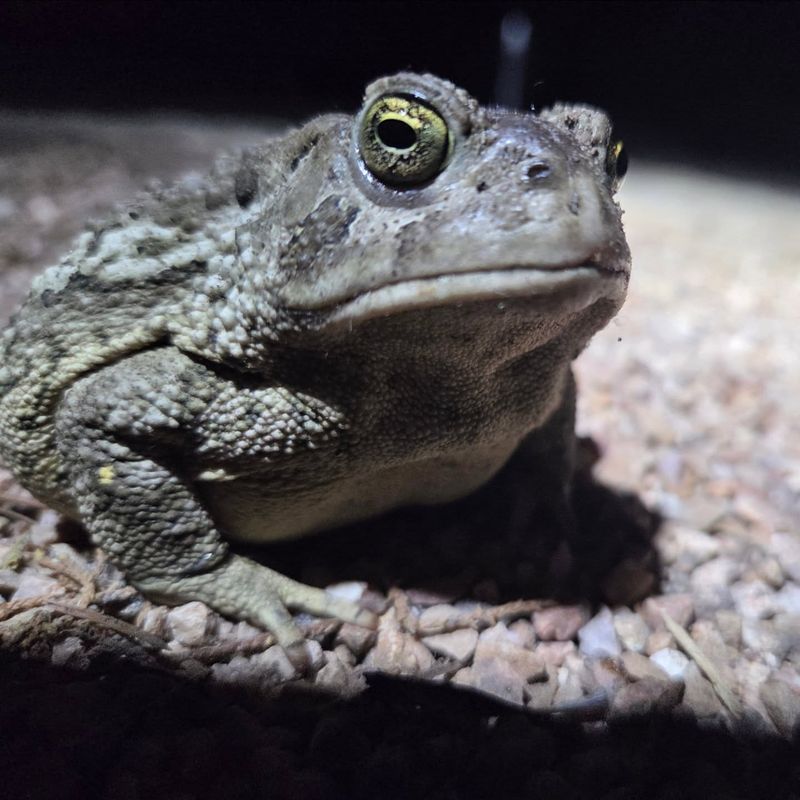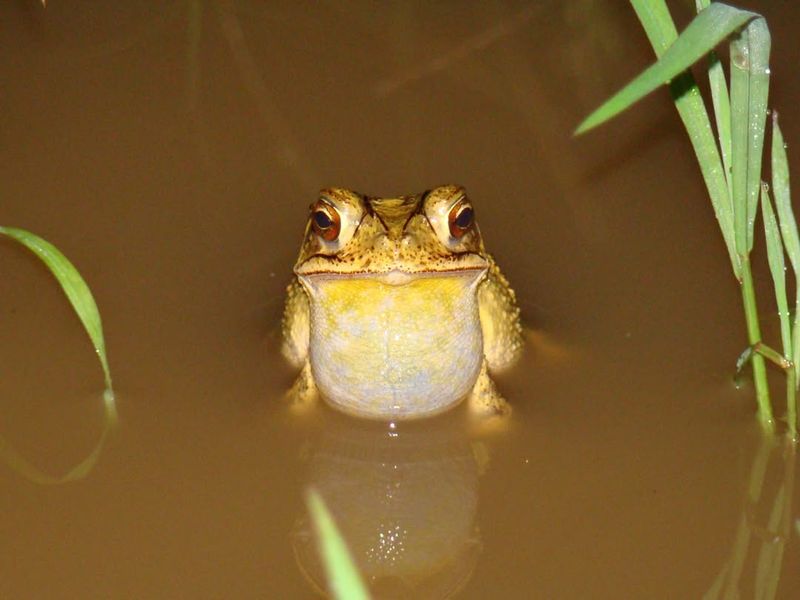A toad on the lawn in Florida often spells good news, not trouble. The little hopper shows up like a seal of approval from nature itself, hinting at balance, moisture, and plenty of life beneath the soil.
Its presence points to a yard that stays in tune with its ecosystem, and many gardeners treat that surprise visitor as a quiet thumbs-up from the wild.
Natural Pest Control Champions
A single toad can devour thousands of insects each month, making them your garden’s secret weapon against pests. Their diet includes slugs, beetles, mosquitoes, and other bugs that damage plants or annoy humans.
When toads patrol your yard nightly, they reduce the need for chemical pesticides that can harm beneficial insects. Their presence means your garden has enough food sources to support these helpful hunters, indicating a balanced ecosystem where nature does the work for you.
Moisture Level Indicators
Toads need moisture to survive since their skin absorbs water directly from their environment. Spotting one means your soil retains the right amount of dampness without becoming waterlogged or bone-dry.
Gardens with proper moisture levels support healthier plant roots and beneficial microorganisms in the soil. Your toad visitor confirms that you’ve struck the perfect balance with watering habits or natural drainage. Well-hydrated gardens produce stronger, more resilient plants that can withstand Florida’s challenging climate.
Chemical-Free Zone Confirmation
Amphibians have extremely sensitive skin that absorbs substances from their surroundings, making them vulnerable to chemical toxins. A toad living in your yard proves you’re not overusing harsh fertilizers or pesticides.
Gardens free from dangerous chemicals support diverse wildlife and produce safer vegetables and fruits for your family. Your toad acts like a living certificate of approval for your eco-friendly gardening methods. Maintaining this chemical-free approach protects water sources and keeps beneficial organisms thriving throughout your landscape.
Shelter And Hiding Spots Available
During hot Florida days, toads seek cool, dark places to rest and avoid predators. Their presence indicates your garden offers plenty of hiding spots like rock piles, leaf litter, or dense plant cover.
These sheltered areas don’t just benefit toads—they create habitats for beneficial insects, earthworms, and other helpful creatures. A garden with varied textures and layers supports more wildlife than a perfectly manicured lawn. Leaving some natural messiness actually strengthens your garden’s health and biodiversity significantly.
Thriving Insect Population
Before you worry about bugs, remember that toads only stay where there’s plenty to eat. A healthy insect population includes both pests and beneficial species that pollinate flowers and decompose organic matter.
Your toad’s presence confirms this balanced bug community exists in your yard. Not all insects are enemies—many help your garden flourish by breaking down nutrients or feeding larger predators. When toads find enough food, it means your garden supports a complete food chain from tiny bugs to amphibian predators.
Reduced Mosquito Breeding
Mosquitoes love Florida’s warm, humid climate, but toads love mosquitoes even more. Adult toads feast on mosquitoes while tadpoles consume mosquito larvae in water sources around your property.
Gardens with toads experience fewer mosquito problems naturally, without needing bug zappers or chemical sprays. Your yard likely has some standing water that toads use for breeding, which they help keep mosquito-free. This natural control system protects your family from annoying bites and potential diseases carried by these pests during outdoor activities.
Healthy Soil Ecosystem
Toads burrow into soil to stay cool and moist, which means your ground must be soft and rich enough for digging. Compacted, poor-quality soil won’t support burrowing amphibians or the organisms they depend on.
Gardens with loose, nutrient-rich soil grow stronger plants with deeper root systems. Your toad’s ability to burrow confirms you’ve built healthy soil through composting or organic amendments. Quality soil also holds water better and resists erosion, making your entire garden more productive and sustainable throughout Florida’s seasonal changes.
Biodiversity Success Story
A garden that attracts toads usually supports many other species too, from butterflies to songbirds. Biodiversity creates resilience against diseases, pests, and environmental stress that might damage monoculture landscapes.
When multiple species coexist in your yard, they form relationships that strengthen the entire ecosystem naturally. Your toad represents just one member of this interconnected community working together. Gardens with high biodiversity require less maintenance because nature balances itself, giving you more time to enjoy your beautiful outdoor space instead of constantly fighting problems.
Night-Time Garden Activity
Toads are primarily nocturnal hunters, meaning your garden stays active and productive even after sunset. Their nighttime patrols control pests that emerge when you’re asleep, providing round-the-clock garden protection.
Gardens that function well at night have established ecosystems that don’t depend solely on daytime pollinators or predators. Your toad proves that beneficial activity continues in darkness, maintaining balance constantly. This continuous natural management means fewer surprises when you check your plants each morning, with pest damage minimized by your amphibian night shift workers.
Water Source Availability
Although toads spend most time on land, they need water for breeding and skin hydration. Spotting one confirms your yard provides accessible water sources like ponds, birdbaths, or even consistent morning dew.
Gardens with available water attract more wildlife beyond toads, creating a complete habitat that supports various beneficial creatures. Your thoughtful water placement or natural moisture retention makes your yard welcoming to species that enhance garden health. Maintaining these water sources ensures toads return year after year, continuing their valuable pest control services throughout every growing season.

